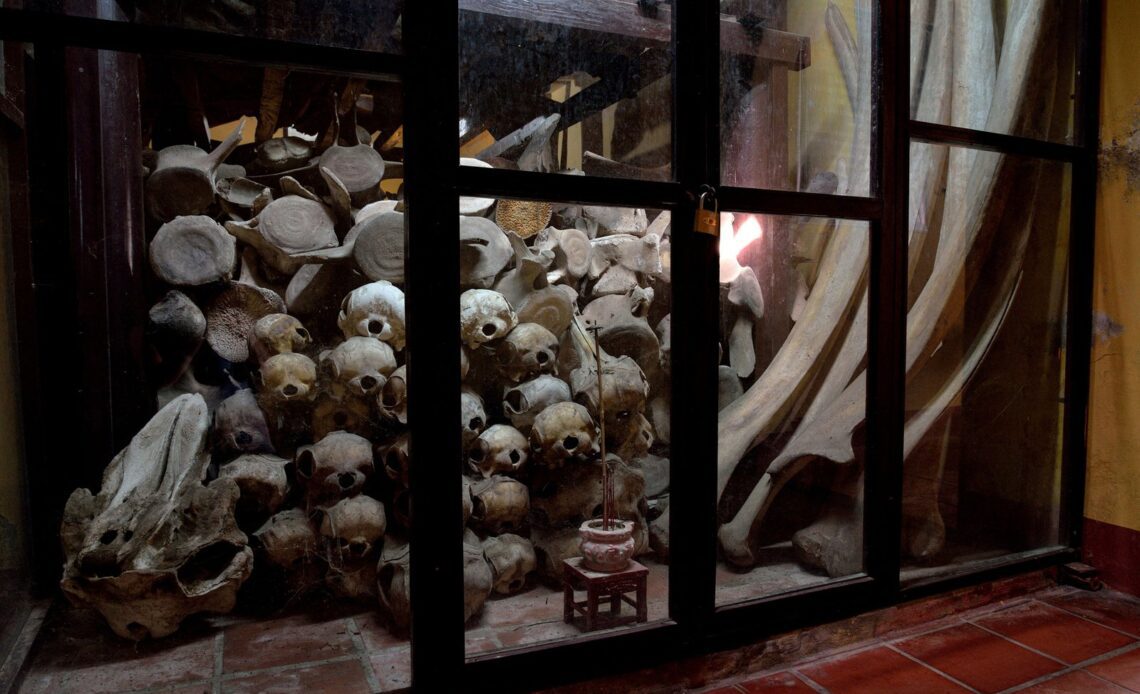The strong afternoon sun bears down on the coastal town of Can Thanh in southern Vietnam, but inside Lăng Ông Thủy Tướng—a single-story, pale-yellow building on the town’s shoreline—it is cool. Diffused sunlight illuminates the main hall, and the air is laden with the woody aroma of burning incense. A lone man, most likely a fisherman, enters the hall, walks toward a 20-meter baleen whale skeleton displayed in a glass case, and folds his hands in deep reverence.
Lăng Ông Thủy Tướng—the temple to the god of the sea—is one of 1,000 or more such shrines on Vietnam’s 3,260-kilometer coastline. At these temples, which come in varying sizes and configurations but all house whale bones, fishermen worship in hopes that their prayers will be carried to Cá Ông, the whale spirit, and they will be blessed with a safe fishing trip and a bountiful catch. Close relatives of fishermen also visit to light candles, burn incense, and pray for the safety of their loved one, sometimes offering fruit and money, hoping their prayers are heard.
For over two centuries, fishing communities along Vietnam’s central and southern coastlines have built places of worship to honor the dead cetaceans washing up on their shores. From large ornate structures to simple graves with headstones to small wooden shoebox-sized shrines bedecked with incense and flowers, these “whale temples” are a centuries-old part of the country’s cultural history, but they also house evidence of its natural history. For this reason, Vu Long, cofounder of the Ho Chi Minh City–based Center for Biodiversity Conservation and Endangered Species (CBES), a grassroots wildlife conservation organization also involved with marine mammal research, is visiting Lăng Ông Thủy Tướng. For marine mammal researchers like Vu who are faced with extremely limited resources and a lack of funding, these whale temples—some holding dozens of skeletons—prove an invaluable source of information regarding the current and historical diversity and distribution of marine mammals in Vietnam. “Besides being a unique aspect of Vietnamese culture, whale temples are a great supplementary source of information for our research,” says Vu,…
Click Here to Read the Full Original Article at Travel | smithsonianmag.com…
